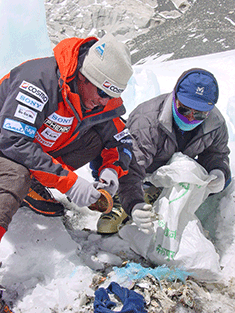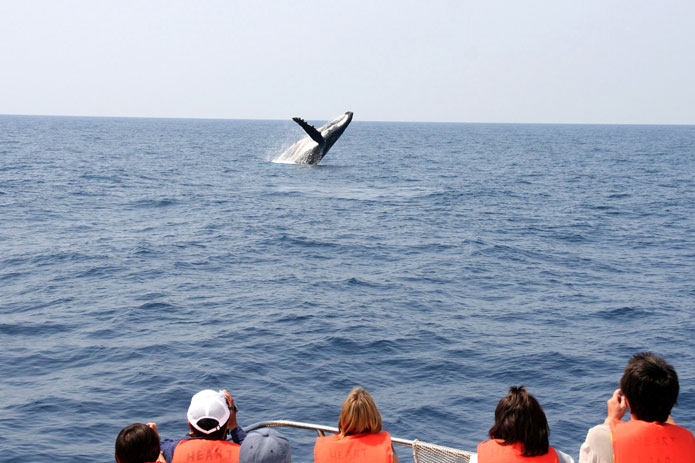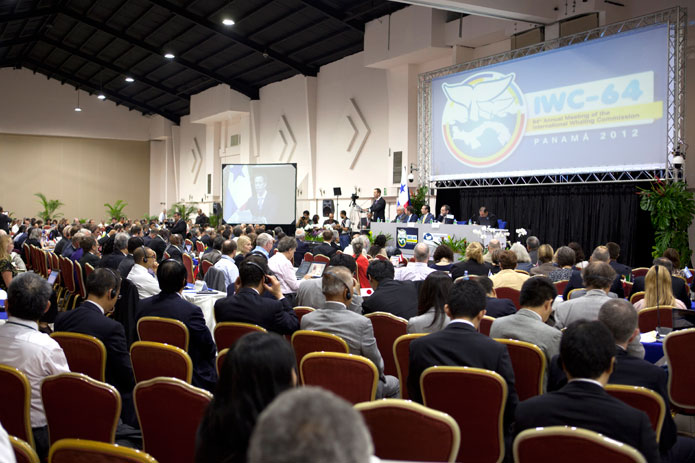Celebrity working to improve conditions on sacred peak
- Recognised as a World Heritage Site of Cultural Significance
- Attracts over 200,000 people a year for the climb
- Land Rover ambassador lived in West Sussex
Ken Noguchi is no stranger to challenges. While solo-travelling on the advice of his father following a suspension from school, the young teen was inspired to try mountain climbing.
Arguably trying to run before he could walk, Noguchi chose Mount Blanc—the highest mountain in the Alps—for his debut trek, and reached the summit. He then set his sights on climbing the Seven Summits, the highest mountains on each of the seven continents.
Ten years later, at the age of 25, he became the youngest person at the time to have completed the mammoth task when he scaled Everest, the final peak.
In recognition of his accomplishment, he was selected for the Tokyo Citizens’ Honorary Award for Culture, and wrote a successful book entitled Ochikoborete Everest (Everest after dropping out), which details his remarkable journey.
Now, the alpinist and environmentalist is working hard to inspire the country’s youth, while continuing to pursue his dream of protecting Mount Fuji for future generations to enjoy.
“What I am trying to do is provide young people with a starting point, something to spark them off, so I’ll explain things to them, talk with them and get them involved”, he told BCCJ ACUMEN, following a lecture at the University of Asia Tokyo. “Then, they will come up with fantastic ideas”.
As a well-known and respected authority on environmental issues, Noguchi regularly gives talks to promote better practices, and the need to clean up Japan’s most sacred mountain.
He appears on television news and environmental programmes, and recently also has begun to feature in variety shows, in an effort to make the issues more appealing to the general public.
Noguchi’s interest in improving conditions on the country’s highest peak is an extension of his work to clean up Mount Everest, which he began in 1997 after he was shocked to learn that expedition parties of his countrymen were among those leaving behind litter.
“I hadn’t really known how filthy Mount Everest was as a result of litter, because when you watch TV programmes about it you don’t really see that: you see the beauty of it”, he said.
The successful removal of tonnes of rubbish from the site through mobilising volunteers has had an impact, both internationally and in Japan, as people seek to address the similar litter problems on Fuji.
As a major tourist attraction, the 3,776m mountain attracts over 200,000 people a year—about one third non-Japanese—who come from far and near for the climb. With the mountain’s recent designation as a World Heritage Site of Cultural Significance, Noguchi has been calling for improvements to education, too.
“What I’d like to see in the future is awareness that Mount Fuji is now officially recognised as part of our cultural heritage. While I don’t argue that we should go back to [when people climbed as an act of worship], I just hope this would be a time for us to rediscover some of those ties”, he said.
As a result of his international upbringing, he describes his ability to see the good and bad in situations like a record—for Fuji, the A side is its beauty, seen from afar, while the B side is the fact it is deep in litter.
Born in the US and having spent his early years in the Middle East, Noguchi received his secondary education in a country school in West Sussex.
He remembers the rights of way that criss-crossed through the grounds and his surprise at seeing horses looming over the horizon as he looked out the classroom window. More shocking, and pleasing to him, though, was the fact that walkers could use these paths, even on private property.
He was impressed by the lush green beauty of the place, and the connection he found English people had with the environment.
“Being close to nature was natural, it wasn’t a big deal because it was something [the English] were accustomed to and could do in a very relaxed way, probably because it was really an extension of the everyday”, he said.
It is perhaps this love he has of the outdoors, and spontaneity to be active that inspired Noguchi to become a Land Rover brand ambassador.
“With the Range Rover you get this feeling that you want to throw all your camping gear in the back and just go off and have an adventure”, he said. “At least, looking at my friends and the people I notice on the streets, it seems it has been a very cool, considered decision for them to drive it because it fits their lifestyle”.
Noguchi is a firm believer that the attitude of the British maker really shines through in the brand’s quality.
“It’s [the British] idea that when you have something that is very good, you take care of it, cherish it, and have a long-term relationship with it”, he added.
This consciousness of the future has influenced his work on a variety of projects. A prolific writer, he has penned a number of books about the environmental issues on Mount Fuji, and has compiled a collection of photographs.
Despite his busy schedule and the challenging work he undertakes, he says the improvement that has been made to the country’s tallest mountain really motivates him to continue. What started as a small clean-up group numbering about 100 people a year is now a project involving 10,000 volunteers who come from all corners of Japan to help.
“It is the change: the fact that I know that I am not alone, and that people are responding [to the clean-up campaign message] is what keeps me going”, he concluded.
Competition
Have you got a favourite snap of Japanese nature?
Publish your best Japanese nature photograph on one of the BCCJ social media sites for your chance to win the use of a Land Rover for a weekend. Click here for more details.







